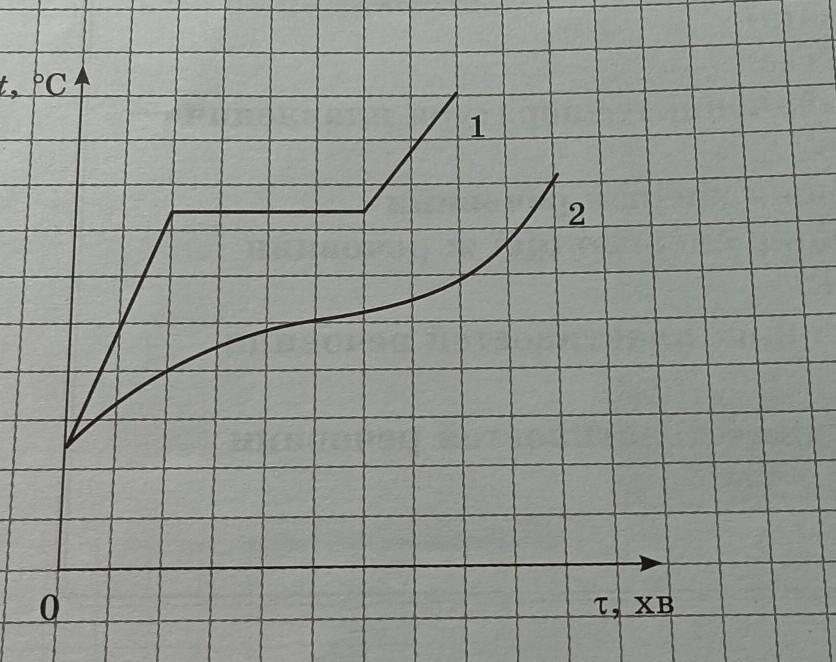Предмет: Физика,
автор: anastasiacupahina01
Розглянь графіки залежності температури шматка льоду та скляного тіла від часу нагріван- ня. У початковий момент часу тіла перебували у твердому стані. Який із графіків побудо- вано для скла, а який для льоду?
Приложения:

Ответы
Автор ответа:
1
Ответ:
1 - лед
2 - стекло
Стекло (только ближний порядок, нет дальнего порядка (ближе к жидкостям)) не имеет точки плавления как таковой (она размыта), потому мы видим на графике постоянное увеличение температуры. Для льда же мы видим на графике фазовый переход первого рода - плавление (переход из твердого состояния в жидкое). При плавлении кристаллического тела (льда) теплота, подаваемая веществу, используется на разрушение кристаллической структуры и преодоление сил взаимодействия между его молекулами, т.е. энергия, которая подается для плавления, не повышает температуру, а используется на разрушение кристаллической структуры.
Объяснение:
anastasiacupahina01:
спасибо большое!!
Похожие вопросы
Предмет: Литература,
автор: marcenkomaria86
Предмет: Математика,
автор: kostyukma367
Предмет: Английский язык,
автор: asemaattokurova396
Предмет: Математика,
автор: gulzazirabisenbaeva
Предмет: Алгебра,
автор: Аноним